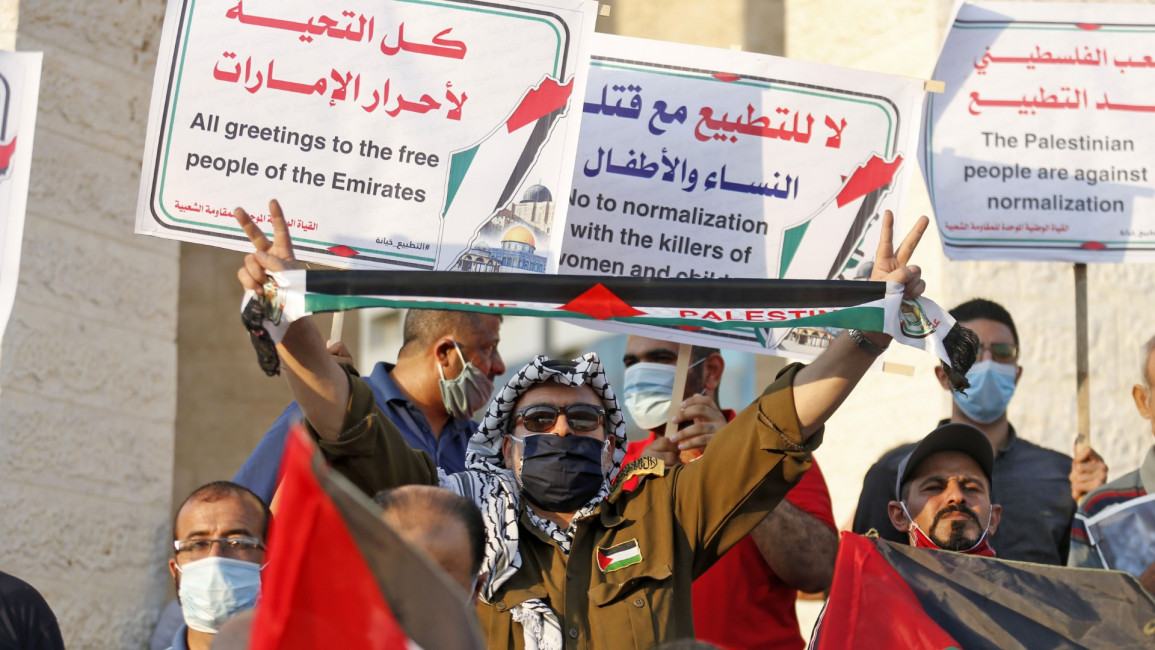Palestinians protest as Israel clinches Gulf normalisation deals
Clutching Palestinian flags and wearing blue face masks for protection against the novel coronavirus, demonstrators rallied in the West Bank cities of Nablus and Hebron and in the Gaza Strip.
Hundreds also took part in a demonstration in Ramallah, home of the Palestinian Authority.
Banners were displayed at the protests, reading "Treason", "No to normalisation with the (Israeli) occupier" and "The agreements of shame".
The decision by the UAE and Bahrain to normalise ties with Israel breaks with decades of consensus within the Arab world that a peace deal with the Palestinians is a prerequisite for establishing relations with the Jewish state.
In Gaza, protesters trampled on and set fire to placards showing Israeli Prime Minister Benjamin Netanyahu, Bahrain's King Hamad bin Isa Al-Khalifa and the UAE's de fact ruler Sheikh Mohamed bin Zayed Al-Nahyan.
Twitter Post
|
"We say to the Bahraini regime and the Emirates that this normalisation is a total betrayal of the Palestinian cause and the hopes of the Arab nation," said Ahmad al-Medalal, an Islamic Jihad official in Gaza.
The signing of normalisation agreements with Israel marks a "black day" for the Arab world, Palestinian prime minister Mohammed Shtayyeh said Monday.
Israel and the United States have for years pressed Gulf countries to establish relations with the Jewish state, particularly in light of their shared animosity towards Iran.
The Jewish state has previously signed peace deals with just two Arab nations, Egypt and Jordan, in 1979 and 1994, respectively.
Agencies contributed to this report.
Follow us on Facebook, Twitter and Instagram to stay connected



